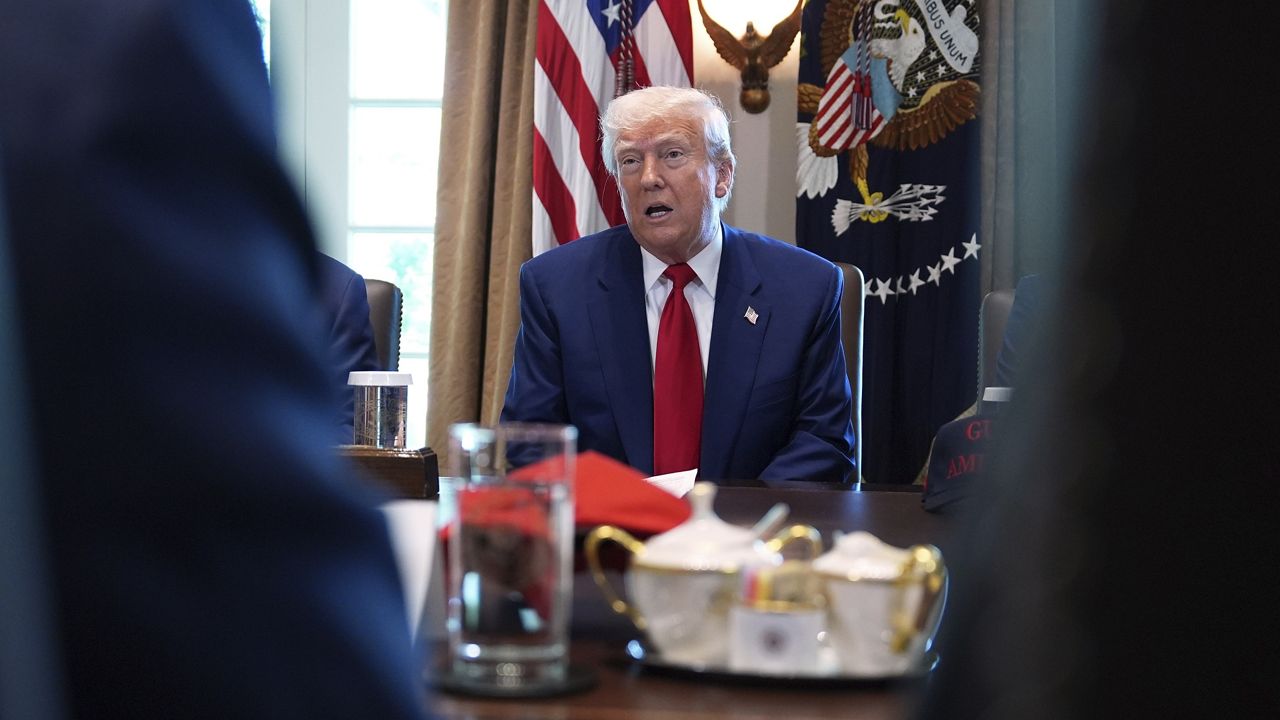WASHINGTON — President Donald Trump on Wednesday expressed optimism about the future of his relationship with Canada and its newly-elected Prime Minister Mark Carney, telling reporters that the Liberal Party leader will soon visit the White House despite recently ultra-high tensions between the North American neighbors.
“I think we’re going to have a great relationship,” Trump said, going on to add that Carney, who was critical of his U.S. counterpart on the campaign trail, was “running for office,” perhaps in a nod to the typical use of political rhetoric around elections.
The president went on to note that the Canadian leader “couldn’t have been nicer” on a Tuesday phone call in which Trump said he congratulated Carney for winning a full term this week. Trump added that Carney said he wants to make a deal on trade in the wake of the president’s tariffs and will visit the White House “within the next week – or less.”
“He called me up yesterday and he said ‘Let’s make a deal,’” Trump told reporters at the end of a Cabinet meeting at the White House.
Canada was one of the first countries to be hit with a higher tariff rate as part of Trump’s sweeping trade agenda that has since taken U.S. markets and the globe by storm, in a bid, according to the president, to address immigration and the flow of fentanyl into the U.S. But days after imposing a 25% tariff on imports from the country, Trump announced he was exempting products that fall under the U.S.-Mexico-Canada Agreement, negotiated during his first term.
Still, Canada has been impacted by Trump’s other tariffs as well, such as his 25% rate on all cars imported into the U.S. which led Carney – then temporarily serving in role after former Prime Minister Justin Trudeau’s resignation – to hit back with his own levy.
Trump’s assertion that Carney wants to strike an agreement comes as his administration is pursuing new trade deals with countries across the globe after he announced – and then paused – so-called “reciprocal” tariffs on partners.
The president’s tariffs and his consistently expressed desire to make Canada a U.S. state was thought to have become significant factors in the country’s federal election this week in which Carney defeated populist Conservative Party leader Pierre Poilievre.
The victory for Carney marked a turnaround for the Liberal Party amid heated tensions with the U.S. as Poilievre was once widely considered to be the likely victor.
Carney heavily leaned into criticism of Trump’s actions as it relates to Canada since his return to the White House while campaigning for the role, once declaring that country’s “old relationship” with the U.S. “is over.”
He repeated that line in his victory speech this week in which he also said the country is in “shock of the American betrayal.”
“President Trump is trying to break us so America can own us,” Carney added, saying that would never happen.
At the end of the Cabinet meeting on Wednesday, Trump asserted that the candidate who hated him the least, apparently referring to Carney, won.
“They both hated Trump and it was the one that hated Trump I think the least that won,” Trump said. “I actually think the conservative heated me much more than the so-called liberal.”
Trump has repeatedly talked about his wish to make Canada that 51st U.S. state, often referring to the country’s leader as “governor” and recently telling TIME Magazine in an interview that he was not “trolling” when he mentions it.
Just ahead of the election, Trump in a Truth Social post on Monday, wished Canadians luck and told them to pick “the man who has the strength and wisdom to cut your taxes in half, increase your military power, for free, to the highest level in the World, have your Car, Steel, Aluminum, Lumber, Energy, and all other businesses, QUADRUPLE in size, WITH ZERO TARIFFS OR TAXES…” seemingly referring to himself.




